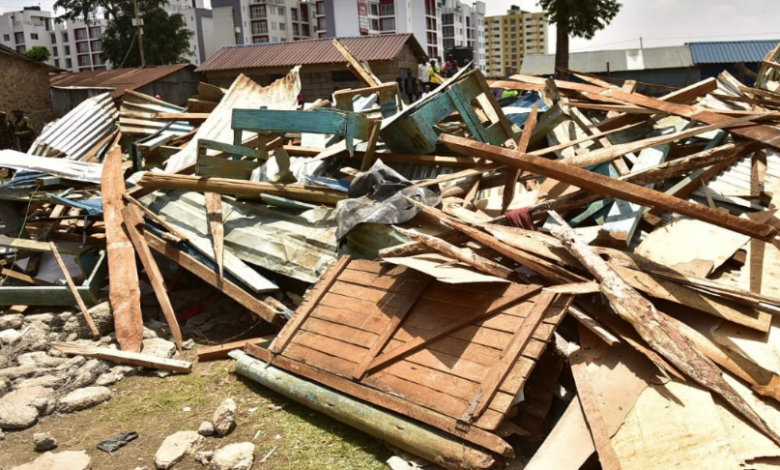What to Consider When Starting a Private School in Kenya

Starting a Private School in Kenya
When starting a private school in Kenya, the law requires that it should first be registered as a company. The process of registration can be found here. The second step is to register the school under the Ministry of Education. However, the county education office is responsible for making sure that the process of registration is seamless.
The respective County Education Office will then conduct a physical visit to the premises to make sure that you have followed the guidelines laid out by the Ministry of Education. If the Officer is satisfied with the application, they will then send the owner to the Ministry of Education head office in Nairobi. The documents required for registration can be found here.
The Law
Basic education in Kenya is recognised as a human right in article 43(1) (f) of the Constitution of Kenya 2010 which acknowledges that every person has the right to education. Every child’s right to free and compulsory basic education is entrenched in article 53 (1) and is not subject to progressive realisation – contrary to article 43.
The 2009 Kenya Policy on Alternative Provision of Basic Education and Training (APBET Policy) addresses ‘alternative provision’ of basic education, which seeks to provide an option/choice that is responsive and relevant to the needs of the targeted population and provides that the Ministry of Education should take measures to protect children from exploitation through provision of sub-standard education and services, by ensuring that all institutions meet minimum quality standards. One of the guiding principles of the policy is ‘Safe, friendly, protective learning environments.’
The Basic Education Act reiterates these principles and provides that the Education Standards and Quality Assurance Council shall monitor and enforce standards and quality of basic education institutions.
The Basic Education Regulations gazetted on 4th April 2015 by the Cabinet Secretary which applies to both public and private institutions provide for mandatory facilities for each institution. The mandatory facilities to be required in every institution of basic education and training are set out in Regulation 64. These include:
- outdoor playing facilities and equipment, both for outdoors and indoors with provisions for persons with disabilities;
- administrative offices;
- sanitary facilities segregated by gender and age;
- kitchen and dining room;
- standard classrooms measuring 7m x 8m for 50 learners for primary school or 45 learners for secondary schools or standard classrooms measuring 7m x 6m for 25 learners for pre-primary learners;
- store rooms; and
- a science room or other rooms for specialized subjects.
With respect to quality, the Education Standards and Quality Assurance Council (ESQAC) is mandated to carry out standards assessments, quality assure, monitor, evaluate and oversee the implementation of the APBET programmes for quality education. Despite being created in early 2015 the impact of ESQAC is yet to be felt.
The Orchestra of blame games
While some parents at Precious Talent School were mourning the loss of their children and other praying for their recuperation in hospital, the Ministry of Education, County Government of Nairobi and the school owner engaged in blame games. The school is partially to blame because they placed learners in a dangerous structure that that did not meet the basic requirements. In addition, the one-storey building— which housed classes Two, Three, Four and Eight— was supported by weak wooden and steel pillars that could not sustain the weight of the learners. The upper concrete floor was held together by wire mesh (not meant for construction) and wooden blocks and the building also had a shallow foundation and had no column.
Furthermore, even after learners reported that the building was shaking, the administration failed to act upon the complaints. Standard Eight learners had to seal-off crevices in the ceiling using papers to keep off dust that would trickle into their class and Parents’ concerns about the welfare of their children were usually brushed off by the school managers.
The Ministry of Education on the other hand also faces criticism because officials from the ministry allowed the school to operate even with the glaring deficiencies and dangers posed by its unfit structures. From overcrowded classrooms to lack of enough toilets and a tiny playground and, the school failed to meet the most basic requirements for a primary school. In addition, contrary to ministry requirements, the centre had no fence, putting schoolchildren’s safety in jeopardy. Education inspectors should have flagged down this irregularity.The school is one of the many private institutions in the densely populated Ngando Ward, which has no public primary schools.
What journalists can do
- Educate the public on the rules and regulations that govern schools .This can be done through carrying out regular programs on radio and TV and articles on print media.
- Highlight the gaps in implementation of various rules and regulations by the relevant authorities and encouraging parents to follow up with the schools and the authority.
- Follow up with the relevant authority in cases where laws are not implemented and share those that have followed the rules as a good example.